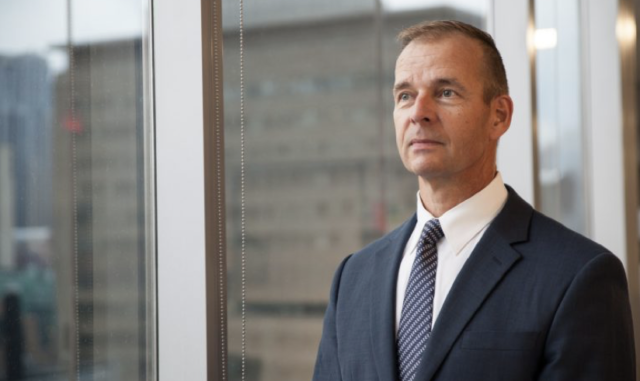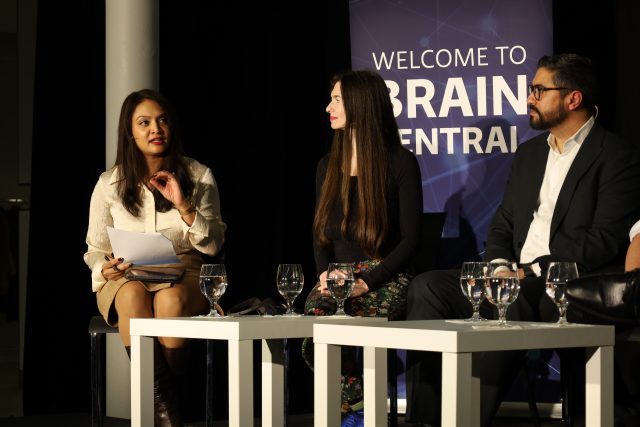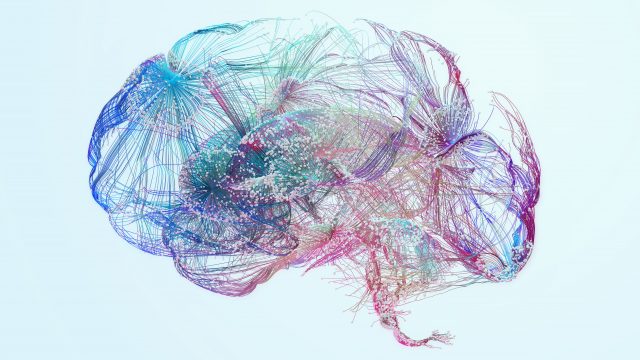Ten years ago, the Ontario Brain Institute (OBI) was established with a goal of improving brain health for the 1 in 3 Ontarians directly impacted by brain disorders. As we look back, we’re certain that our formula for collaborative discovery and innovation works and that we are on course to advance brain health. But along the way we’ve learned a lot by testing assumptions, collecting feedback from our stakeholders, and gathering data that will help us chart the course for the next phase. While there are many insights we could share, a few stand out which will help us focus our activities through this funding cycle and the next. And they all revolve around how we work with people, which is when you think about it makes sense for an organization that is focused on building relationships and supporting collaborations.
We have learnt to appreciate that showing direct impact of work on the people and the community is as important as strong performance metrics. We’ve seen that patient engagement improves the quality of research and makes its outputs more meaningful. And lastly, we must listen to the needs of our stakeholders and build systems to help them succeed.
One, never lose sight of the direct impact on people. We take pride in the strong metrics delivered by our network of partners. But there are plenty of personal impact stories that do not fit neatly into boxes and powerfully demonstrate the outcomes we are trying to create. There is a saying attributed to Einstein that embodies this idea: ‘not everything that can be counted counts, and not everything that counts can be counted’. Hearing stories about First Nations youth finding a sense of community and belonging through the Stories from Our Roots life promotion program shows the value of investing in strengthening communities. Learning about Michelle, a person with an intellectual disability, successfully complete her training and find employment through the OBI-GEEK program is a reminder of why personal empowerment matters. Helping the next generation of researchers, like the ONDRI Scholars, develop skills needed to succeed in their careers and encourages more interdisciplinary research and data analysis. And seeing a child living with cerebral palsy able to stand up and take his first steps to hug his mother thanks to a partnership between CP-NET and GaitTronics SoloWalk is a reminder of why we need to push for the faster translation of research into the real world.
Two, nothing about them without them. Patient engagement matters and we must include a community of people with lived experience, caregivers and advocates every step of the way. With their input and insight, we believe we will improve the research process and create more impactful outcomes. For example, our Patient Advisory Committees ensure our research programs are asking the right questions and working with their community to deliver knowledge back to the people it’s supposed to help similar to CONNECT’s patient voices project. We’ve also included the community in Setting Research Priorities for epilepsy and neurodevelopmental disorders which helped sharpen our focus on research funding and policy development. With the challenges we are yet to face in a post pandemic world, these priorities will help us concentrate on what matters the most. Similarly, including community in testing and designing neurotech helps develop products with the end user in mind. And by including community members in the development of resources like the CHOICE-D guide developed in partnership with CANBIND for depression management, we ensure that evidence works in concert with lived experience to create tools that people can use.
Three, if you build it (what they need), they will come. OBI was the outcome of a needs assessment that sought to understand what Ontario needed to become a world leader in brain research, commercialization, and care. Ontario brimming with 800+ neuroscientists and entrepreneurs was ripe with potential and resources to support a booming market but was missing the catalyst to bring this potential to reality. As part of our origin story, we have maintained this approach when developing our programs, to meet the needs of the people they intend to support. For example, OBI built a neuroinformatics platform, Brain-CODE to facilitate data collection, curation and sharing with the international research community to advance brain health. Today, Brain-CODE has 1500+ users, data from more than 20,000 participants, supported 100+ data requests and this year released its first set of clinical data. Similarly, when OBI established Integrated Discovery Programs (IDPs), we wanted to change our approach to doing science, today POND, neurodevelopmental disorders program has morphed into a clinical trials network, a first in Canada, publishing hundreds of research papers and sharing data with the world to advance neurodevelopmental disorder research. While a current total of 81 portfolio companies at OBI was made possible through the ONtrepreneurs Program that supports early-stage entrepreneurs and NERD helping de-risk technologies closer to market. With $3M in funding over the decade, the ONtrepreneurs Program has facilitated 20 products to market and secured $106M in follow-on investments which is nearly 35x the return on OBI’s initial investments. And last but not least, OBI-GEEK, an initiative to support community care, closer to home allocated funding of $1.1million over five years and is three years in the running. To date OBI-GEEK has supported nine community-led organizations helping them secure a 2:1 return on OBI’s investments thus far.
OBI started small and grew from success, gradually expanding its mandate and network. To date, we have created a network that represents 192 researchers, 89 partners, 163 interns, 81 portfolio companies and 29 community organizations. And together, they have helped leverage $389 million, facilitated 100+ open data requests, brought 20 products to market and published 248 tools and resources. Of course, our work does not end here, and this is only the beginning. As we buckle up to speed through the next decade, we will frequently refer to our learnings and expect to push through with clearly articulated set of values, priorities, and rigor, all for the 1 in 3 Ontarians we mean to serve.


